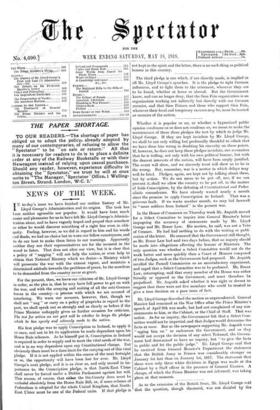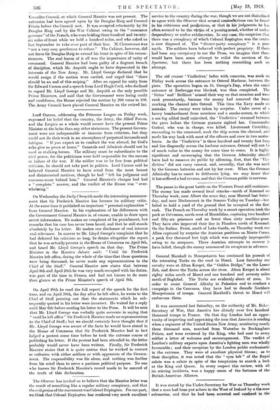As to the extension of the British front, Mr. Lloyd
George said that the question, though discussed, was not decided by the Versailles Council, at which General Maurice was not present. The extension had been agreed upOn by Sir Douglas Haig and General retain before the. Council met. It watt accepted reluctantly by Sir Douglas Haig and by the War. Cabinet owing to the " enormous pressure" of the French, who were holding three hundred and twenty- six miles of front while we held a hundred miles, and who asked us last September to take over part of their line. M. Clemenceau was " not a very easy gentleman to refuse." The Cabinet, however, did not force Sir Douglas Haig to extend his front in spite of his remon- strances. The real lesson of it all was the importance of unity of command. General Maurice had been guilty of a flagrant breach of discipline, which Mr. Asquith ought to have deprecated in the interests of the New Army. Mr. Lloyd George declared that be would resign if the motion were carried, and urged that "there should be an end of this sniping." After an appeal for unity from Sir Edward Carson and a speech from Lord Hugh Cecil, who declined to regard Mr. Lloyd George and Mr. Asquith as the only possible Prime Ministers, and said that the Government were losing credit and confidence, the House rejected the motion by 293 votes to 106. The Army Council have placed General Maurice on the retired list.



























 Previous page
Previous page